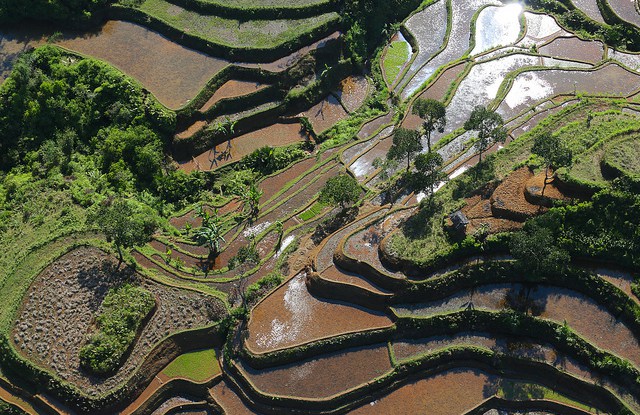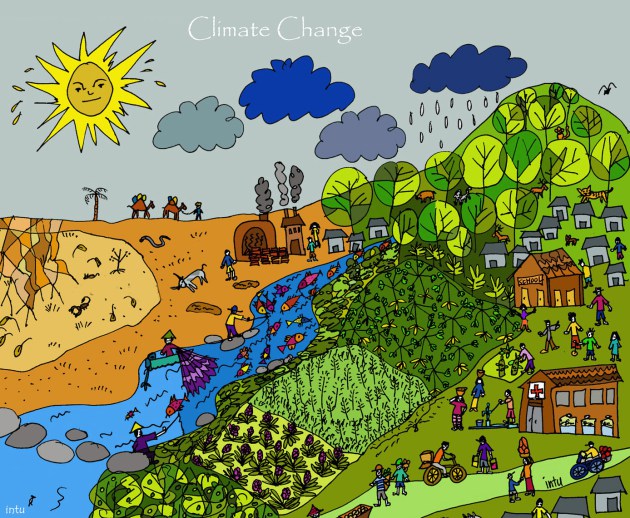
Integrated approaches to land management at landscape scales have been evident in the development and conservation sectors, under various guises, for many years now. But despite initial promise, strategies such as Integrated Conservation and Development Programs, Ecosystem Based Approaches and Integrated Watershed Management have in many cases failed to deliver on reconciling conservation and development objectives concomitantly.
Meanwhile, the Integrated Landscape Approach is gaining traction as a more inclusive and equitable land-management tool for balancing competing demands among different sectors. While there have been many recent attempts to describe and define the landscape approach, a number of challenges persist.
To that end, a recent seminar titled ‘Unraveling the Landscape Approach,’ held in Wageningen, Netherlands, in September, aimed to reach a consensus on the purpose of the landscape approach and to identify what obstacles need to be overcome in order to further refine the concept for broader, more successful implementation. Participants sought to learn what the landscape approach is, what is new about the approach compared to previous integrated land management frameworks, and how the approach can work for the benefit of people and the planet.
PROGRESS SEEN
It is now widely accepted that we need to move away from narrow sectoral approaches to land management in favor of a more integrated package of activities, reflective of the multifunctional nature of landscapes. As panelist Meine van Noordwijk of the World Agroforestry Centre (ICRAF) remarked: “We know that forests and farms occur as mosaics, so this should be acknowledged in policy and practice.”
Participants recognized that a landscape approach could be the most effective way forward for sustainable and equitable land management. The framework has the potential to accommodate competing demands for local livelihoods, food security, forestry, agriculture and other commodity-driven sectors. As well as balancing these activities in a holistic way, the landscape approach also accounts for the dynamic nature of landscapes. As Rene Boot of Tropenbos International said, “We are dealing with a moving target”; therefore, an adaptive management strategy is required.
There was a general consensus at the seminar that integrated landscape approaches have the potential to address multiple and complex environmental, social and political challenges associated with land management. However, it was also recognized that such approaches would not always deliver the much desired “win-win” scenarios. As pointed out, there will at times be both winners and losers; one of the challenges is identifying where these trade-offs exist and applying solutions appropriately.
We must accept that the integrated landscape approach is a framework that needs to be as adaptable as the landscape to which it is applied. It is not claimed to be a panacea, and what works in one context may not be appropriate elsewhere.
OBSTACLES REMAIN
Despite recognition of what we need to do to move forward, there is still a lack of capacity for integration and implementation of the landscape approach. This likely stems from an engagement barrier between researchers, policy makers and practitioners. We are still swimming in a sea of terminology associated with the landscape approach and other related guises and without at least some broad consensus within the research community on definition or guidelines, implementation on the ground will be stalled.
It was noted at the seminar that local-level farmers are already thinking in a landscape way, but there are many complexities at a higher level to instill strong governance for the landscape approach. We now need to consider what governments should be doing in terms of coordinated land-use planning, and consider what we as researchers, development partners and donors should be doing to push forward the landscape approach. In short, we need to start with breaking down communication barriers across multiple sectors.
It was also noted that there should be a wider representation of stakeholders present in these meetings. Where are the farmers, local government representatives, village heads, and private companies? Local land owners especially play a key role in land management and empowerment needs to be given. But as Edith van Walsum of ILEIA commented, “We should also avoid ‘tokenism’ of including local practitioners, leaders and figure heads with regards to decision making.” Instead, we should invest in their capacities and knowledge by giving them a place at the decision-making table.
The ‘Unravelling the Landscape Approach’ seminar was chaired by Agnes van Ardenne, Chair of LandschappenNL and former Minister for Development Cooperation in the Netherlands government. Speakers and panel members included René Boot (Tropenbos International), Jeff Campbell (FAO), Ingrid Duchhart (WUR), Koen Kusters (WiW), James Reed (CIFOR), Meine van Noordwijk (ICRAF) and Edith van Walsum (ILEIA). The seminar was coordinated by Tropenbos International and co-organized with ILEIA – Centre for Learning on Sustainable Agriculture, Wageningen University and Research Centre, Utrecht University, the Dutch Society of Tropical Forests, the Netherlands Ministry of Economic Affairs and Ministry of Foreign Affairs.
We want you to share Forests News content, which is licensed under Creative Commons Attribution-NonCommercial-ShareAlike 4.0 International (CC BY-NC-SA 4.0). This means you are free to redistribute our material for non-commercial purposes. All we ask is that you give Forests News appropriate credit and link to the original Forests News content, indicate if changes were made, and distribute your contributions under the same Creative Commons license. You must notify Forests News if you repost, reprint or reuse our materials by contacting forestsnews@cifor-icraf.org.

